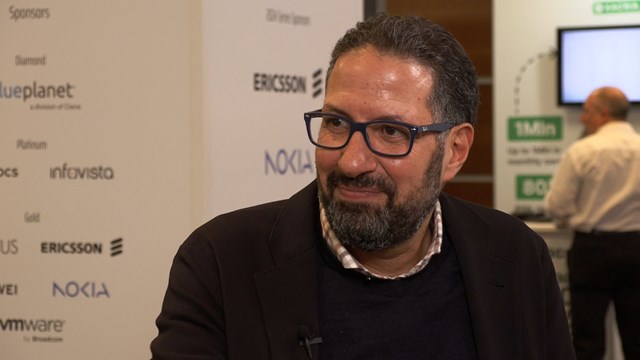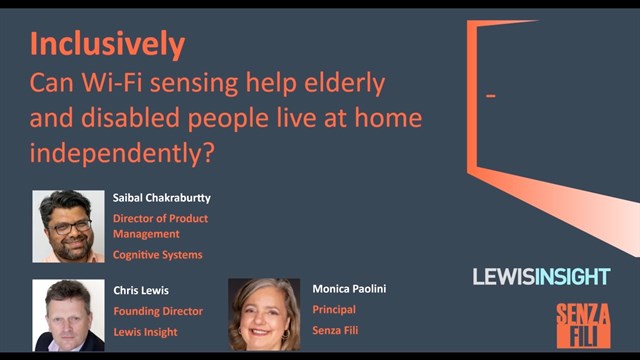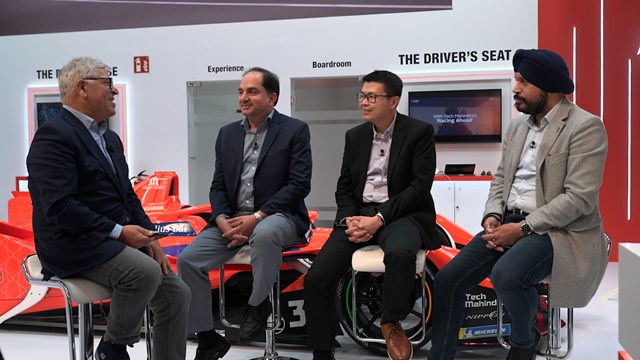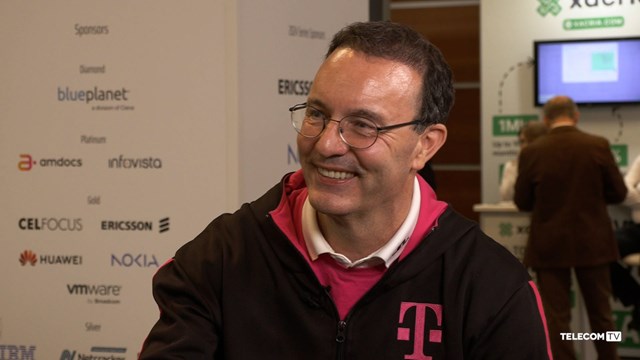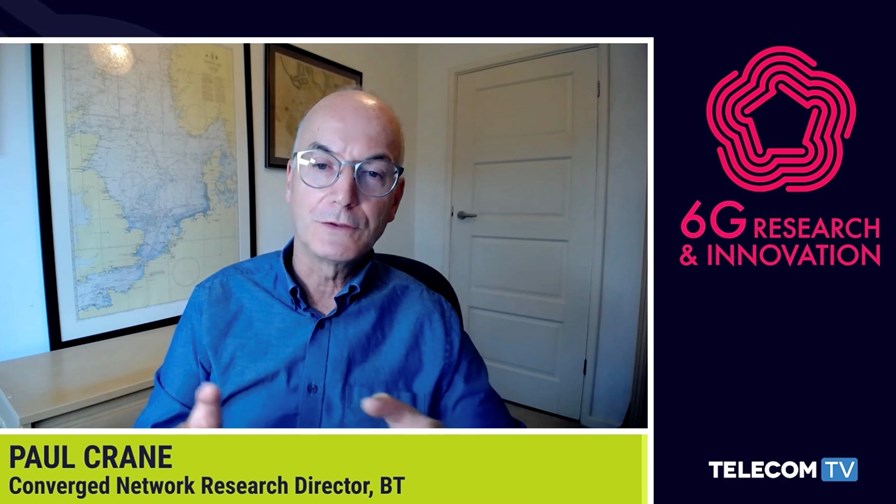
Paul Crane, Converged Network Research Director, BT
- Industry experts discuss what operators want from 6G
- They also discuss what they don’t want
- BT’s Converged Network Research Director Paul Crane wants evolution, not a ‘step change’
- Multiple approaches and technology options being explored
- Many years needed for development due to multidisciplinary nature of telecom developments, says Bristol Digital Futures Institute Director Dimitra Simeonidou
6G Research & Innovation Summit: The traditional shift from generation to generation in standardized cellular technologies, as has happened from 2G to 5G, should be avoided for 6G, which needs to be an evolution that can be embraced as and when it makes sense for service providers, believes Paul Crane, Converged Network Research Director at BT.
Talking during TelecomTV’s 6G Research & Innovation Summit roundtable discussion, What do operators want from 6G?, Crane noted that “we're in the very early days of 5G, with the onwards definition of 5G advanced, I think that technology is going to be with us for maybe another 20 years, and that's the baseline of where we're working from.”
He continued: “What I don't want to see is that step change, that non-backwards-compatible step change that the industry has traditionally gone through – 2G to 3G, 3G to 4G, 4G to 5G. I think what we need to do now is look at not only the technologies that we'll be deploying in 10 or 20 years’ time, but equally importantly look at how we go about doing that, so we can actually avoid that step change and have a much more evolutionary approach where operators like ourselves can implement technology when there's the market demand, rather than build before there's actually demand.”
And the what, how and why of 6G needs to be addressed now because of the complex nature of today’s communications networking architectures, noted Dimitra Simeonidou, Director of Smart Internet Lab/Co-director at the Bristol Digital Futures Institute.
“Do we need to start to engage with industry at this point [about 6G]? I think yes. And the timeline is not only about identifying technologies ... it’s the complexity that drives the long timeline. In my opinion, the telecom sector is not any more a single sector, like it was 10 years ago. If we are looking at mobile networks, it's not only [about] communication and networks technologies – we increasingly need expertise from AI and machine learning, we need expertise from cyber[security], we need expertise about cloud and compute to incorporate in our design... operators could drive this approach and act as a catalyst, bringing this expertise together in a long-term systems approach,” proclaimedSimeonidou.
“And that's probably going to take more time than we took, for instance, to design 5G... So we need to start now. Quite a lot of our colleagues started already, a year or two years ago, thinking about 6G – for me, it's the complexity and that multidisciplinary need that we need to incorporate in our design thinking” that is driving the timeline, she added.
There are other considerations too that need to be factored into 6G research plans right now, including societal impacts, sustainability and the potential impact on other sectors, stated Javan Erfanian, Distinguished Member of Technical Staff at Bell Canada.
“When we talk about energy efficiency or green or renewable energy, the big impact is also on other sectors. And that also goes back to the Paris accord and some of the... net zero targets. And also there's a broader picture, for example, when we say societal... when we talk about robotics, collaborative robots, interactions, even telepresence in mixed reality, [these] can serve not only differentiated market opportunities but also societal [needs], for example, tele-health, telepresence for elderly care, or anything we can imagine and many [that are] unimaginable today, so there is a broad spectrum which has significance here,” stated Erfanian, who referenced the NGMN’s work on 6G.
To find out what Crane, Simeonidou and Erfanian had to say about other 6G-related issues, including edge computing, digital inclusion, trust, new service developments and more, then check out the roundtable discussion: To watch the What do operators want from 6G? session and to vote in our poll, submit questions for our live Q&A panel at 11:30 EDT/16:30 UK/17:30 CEST on Thursday 7th October and watch all of the Summit’s discussions and interviews, register for the summit here (it is quick and free).
- Ray Le Maistre, Editorial Director, TelecomTV
Email Newsletters
Sign up to receive TelecomTV's top news and videos, plus exclusive subscriber-only content direct to your inbox.

